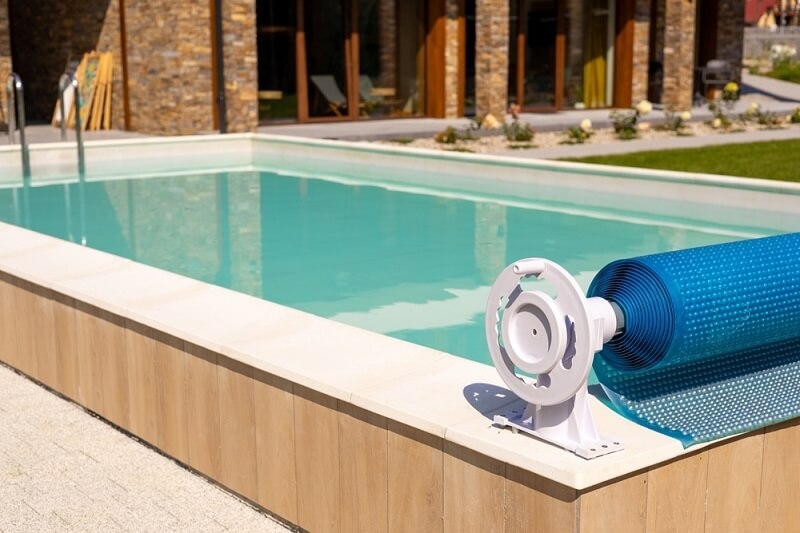Homeowners Insurance: Explaining the Covered Risks
Homeowners Insurance: Explaining the Covered Risks


Homeowners insurance is a crucial protection that helps safeguard your home and belongings from various risks and perils. Understanding what your policy covers can help you make informed decisions about your coverage. Let's delve into what a standard homeowners insurance policy typically covers, common optional endorsements, and what is not covered under a standard policy.
Coverage of Standard Homeowners Insurance Policy
A standard homeowners insurance policy typically includes coverage for the following:
Dwelling Coverage: This covers the structure of your home and attached structures, such as a garage or deck, from perils like fire, windstorm, hail, and vandalism.
Personal Property Coverage: This protects your personal belongings, such as furniture, clothing, and electronics, from covered perils both inside and outside your home.
Liability Protection: This provides coverage if you're found legally responsible for injuries or property damage to others. It also covers legal defense costs.
Additional Living Expenses (ALE): If your home becomes uninhabitable due to a covered loss, ALE coverage helps pay for temporary living expenses, such as hotel stays or rental accommodations.
Medical Payments to Others: This covers medical expenses if someone is injured on your property, regardless of fault.
Optional Homeowners Insurance Endorsements to Consider
Homeowners insurance endorsements, also known as riders or add-ons, are additional coverages that you can purchase to customize your policy. While standard homeowners insurance policies provide essential coverage, these endorsements can offer extra protection for specific risks or items not covered by your basic policy. Here are some common optional endorsements you might consider:
Scheduled Personal Property
This endorsement allows you to insure specific high-value items, such as jewelry, art, or collectibles, for their full appraised value. It provides broader coverage than the standard personal property coverage, including coverage for accidental loss.
Flood Insurance
Standard homeowners insurance typically does not cover flood damage. If you live in a flood-prone area, purchasing a separate flood insurance policy or endorsement is crucial to protect your home and belongings.
Earthquake Insurance
Similar to flood insurance, earthquake coverage is not included in standard homeowners insurance policies. If you live in an earthquake-prone area, adding this endorsement can provide coverage for damage caused by earthquakes.
Sewer Backup Coverage
This endorsement covers damage caused by the backup of sewers or drains. Standard policies often exclude this coverage, so adding it can protect you from costly repairs.
Home Business Coverage
If you run a business from home, your standard homeowners insurance may not cover business-related liabilities or property damage. This endorsement can provide coverage for business equipment and liability related to your home-based business.
Identity Theft Coverage
This endorsement can help cover expenses related to identity theft, such as legal fees, credit monitoring, and lost wages due to time spent resolving identity theft issues.
Does Homeowners Insurance Cover the following?
Mold Damage: Mold caused by a covered peril, such as a burst pipe, is typically covered. However, mold resulting from neglect or maintenance issues may not be covered.
Roof Leaks: Damage from a sudden and accidental roof leak, such as from a storm, is usually covered. However, damage from wear and tear or lack of maintenance may not be covered.
Water Damage: Damage from sudden and accidental water leaks, such as a burst pipe, is generally covered. However, damage from floods or gradual leaks may not be covered.
Termite Damage: Termite damage is typically not covered by homeowners insurance. Preventative measures and repairs are usually the homeowner's responsibility.
Theft: Theft of personal belongings is usually covered under a standard homeowners insurance policy, up to the policy limits.
Plumbing Issues: Damage from sudden and accidental plumbing issues, such as a burst pipe, is typically covered. However, damage from gradual leaks or lack of maintenance may not be covered.
Fires: Damage from fires, including smoke damage, is usually covered under a standard homeowners insurance policy.
Dog Bites: Liability coverage under homeowners insurance may provide coverage for dog bites, but coverage limits and exclusions may apply.
Tree Removal: Homeowners insurance may cover tree removal if a tree falls on your property due to a covered peril, such as a storm. However, coverage limits may apply.
Things Homeowner Insurance Policies Don't Cover
Homeowner insurance policies are comprehensive, but there are certain things they typically don't cover. It's important to understand these exclusions to avoid surprises when filing a claim. One common exclusion is damage caused by floods and earthquakes. Separate insurance policies are usually required for these types of disasters. Another common exclusion is damage from poor maintenance or wear and tear. Insurance is designed to cover sudden and accidental damage, not issues that could have been prevented through regular upkeep.
Homeowners insurance also typically doesn't cover damage from certain types of pests, like termites or rodents. Infestations are seen as preventable issues that homeowners are expected to address themselves. Additionally, damage caused by acts of war or terrorism is usually not covered. While these events are rare, they are often excluded from standard insurance policies.
Personal belongings that are particularly valuable, such as expensive jewelry or artwork, may not be fully covered under a standard policy. Additional coverage, known as a rider, may be needed for these items. Lastly, damage from certain types of home businesses, like those involving heavy equipment or hazardous materials, may not be covered. Separate business insurance may be necessary for full protection.
Understanding what your homeowner insurance policy doesn't cover can help you avoid gaps in coverage and ensure you have the protection you need. If you have specific concerns or questions about your policy, it's best to speak with your insurance provider to clarify any potential exclusions.
Know the Difference between Replacement Cost & Actual Cash Value Coverage
When it comes to homeowners insurance, understanding the difference between replacement cost and actual cash value coverage is crucial. These terms refer to how your insurance company will value and payout for covered losses.
Replacement Cost Coverage
With replacement cost coverage, your homeowner's insurance company will reimburse you for the full cost of replacing or repairing damaged property with new items of similar kind and quality without deducting for depreciation. This means you'll receive enough money to replace your damaged items with brand-new ones, which can be especially beneficial for newer items.
Actual Cash Value Coverage
Actual cash value (ACV) coverage, on the other hand, takes depreciation into account. When you make a claim under ACV coverage, your insurance company will reimburse you for the cost of the damaged property minus depreciation. This means you'll receive less than the full replacement cost as the value of your items decreases over time.
When Is a Homeowner's Policy Payable?

Homeowners insurance typically pays out when your property is damaged or destroyed by a covered peril, such as fire, theft, or windstorm. However, the specific circumstances under which your insurance will pay out depend on your policy's terms and conditions.
It's important to review your policy carefully and understand what is covered and what is not. Additionally, most policies require you to pay a deductible before your insurance kicks in, so be sure to factor that into your financial planning.
You may also like to read: Affordable Home Insurance Quotes: Protect Your Investment.
Conclusion
In conclusion, homeowners insurance provides crucial protection for your home and belongings against a range of risks, including fire, theft, vandalism, and natural disasters. Understanding what your policy covers is essential to ensure you have adequate protection. While policies can vary, most standard homeowners insurance policies typically cover the structure of your home, personal belongings, liability protection, and additional living expenses if you're temporarily displaced from your home due to a covered loss. It's important to review your policy regularly and work with your insurance provider to make sure you have the right coverage for your needs.
FAQs
What does a homeowners insurance policy cover?
A homeowners insurance policy typically covers the structure of your home, personal belongings, liability protection, and additional living expenses if you're temporarily displaced from your home due to a covered loss.
What coverage under a homeowners policy would cover?
Coverage under a homeowners policy would cover damage or loss caused by perils such as fire, theft, vandalism, and certain natural disasters, depending on the specifics of your policy.
What is the most common home insurance coverage?
The most common home insurance coverage includes protection for the structure of your home, personal belongings, liability protection, and additional living expenses if you're temporarily displaced from your home due to a covered loss.
What are the six categories typically covered by homeowners insurance?
The six categories typically covered by homeowners insurance include the dwelling (structure of your home), other structures (like a garage or shed), personal property (your belongings), loss of use/additional living expenses, personal liability, and medical payments to others.
This content was created by AI



